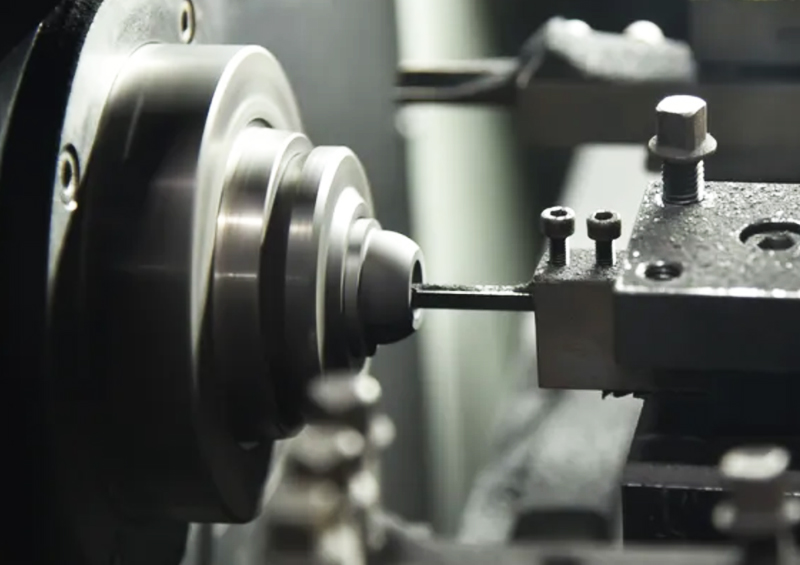
 2022-11-23
2022-11-23
 2023-10-18
2023-10-18Spherical graphite has a wide range of market applications, widely used in industry, agriculture, and mining. It has a wide range of applications and is an important additive material in industrial production. So where are spherical graphite used.1. Spherical graphite as refractory material: The graphite structure and its related products have the properties of high temperature resistance and high strength, and can be mainly used in the metallurgical machinery industry for graphite crucibles and other manufacturing processes.2. Spherical graphite as a conductive material: used for manufacturing electrodes, carbon tubes, positive electrodes for mercury rectifiers, telephone parts, television tubes, etc.3. Spherical graphite as a wear-resistant lubricating material: graphite is commonly used as a lubricant in the mechanical industry. Lubricants typically cannot be used at high speeds, temperatures, and pressures, and wear-resistant materials can be graphite at high sliding speeds.4. The
 2023-10-17
2023-10-17Due to the fact that graphite is a non-polar material, it is difficult to intercalate with small polar organic or inorganic acids alone, so oxidants are usually required. The chemical oxidation method generally involves soaking natural flake graphite in a solution of oxidants and intercalators. Under the action of strong oxidants, graphite is oxidized, causing the neutral network of planar macromolecules in the graphite layer to become positively charged planar macromolecules. Due to the extrusion effect of isotropic positive charges between positively charged planar macromolecules, the spacing between graphite layers increases, and the intercalation agent is inserted between the graphite layers to form expanded graphite.Expanded graphite will rapidly shrink when heated at high temperatures, with shrinkage times reaching tens to hundreds or even thousands of times. The apparent volume of contracted graphite reaches 250-300 milliliters/gram or more. The shrunken graphite is in the shap
 2023-10-17
2023-10-17In recent years, various types of low-density carbon graphite materials have been actively studied, including carbon (graphite) foam made of mesophase pitch or polymer resin, and carbon nano foam formed when carbon materials are ablated by high repetition rate pulsed laser. Expanded graphite is also a low-density carbon graphite material. Due to the simple preparation process, low production cost, and convenience for large-scale industrial production of expanded graphite, research on expandable graphite has continued to deepen in recent years. The following editor from Jinhui Graphite Company introduced the method of making low-density expanded graphite blocks by soaking flexible graphite in concentrated acid:The worm like shape and weak macroscopic structure of expanded graphite limit its application. If a stable and expandable graphite block can be made, it will be beneficial for expanded graphite to play its role as a functional material for adsorption, insulation, thermal conducti
 2023-10-16
2023-10-161. The purity of high-purity graphite in the selection of production raw materials is immediately related to the ash content of the selected raw materials under the same production conditions. Civil expandable graphite products have the following pattern: those with high ash content in raw materials also have high ash content in their products. Therefore, the ash content of petroleum coke selected for the production of nuclear high-purity graphite is specified in the mouth. Below 15%, although the boron composition is required, analysis will be conducted, and the specific data information is all in 0. 5pp. Below. The total ash content of the product was divided into 5 parts in ppm, with boron content in the parts. The thermal neutron absorption cross section of the LPPM is 3. Eight times three. 94 millibars.2. The high temperature quenching and tempering treatment and other halogenation solutions have a fundamental impact on the removal of ash, as well as whether or not halogenation s
 2023-10-16
2023-10-16As a functional filler for coatings, flake graphite is mainly used for anti-corrosion coatings, fireproof coatings, and conductive coatings.As a anti-corrosion material, it is made with carbon black, talc powder, and oil as an anti rust primer, which has good resistance to chemical and solvent corrosion. If chemical pigments such as zinc yellow are added to the formula, its anti rust effect is better.The expandable graphite used as a fireproof filler is a graphite interlayer compound obtained from natural graphite flakes through chemical or electrochemical treatment. Under heating conditions, the expandable graphite rapidly expands in volume (up to 300 times), suffocating the flame and generating an expanding substance to isolate the flame, delay or interrupt the flame spread. It is also non combustible, has good softness, and has high surface energy, The carbonization layer has good strength. However, the volume and dosage of the expansion body should be selected appropriately. Exper
 2023-10-12
2023-10-12The principle is to quantitatively inject the sample into a graphite tube using a sampler, and use the graphite tube as a resistance heating element. After being energized, the sample quickly heats up to achieve atomization. The heating power supply, maintenance gas control system, and graphite tube furnace are composed. An external power supply is added to both ends of the graphite tube to supply energy to the atomizer. The current flows through the graphite tube to generate a temperature of up to 3000 ℃, causing the measured element in the graphite tube to become ground state atomic vapor. The maintenance gas control system is used to control the instrument startup of maintenance gas, maintain the flow of Ar gas, and cut off the Ar gas flow after the air combustion is completed. The Ar gas in the external gas path flows along the outer wall of the graphite tube to maintain it from being burned, while the Ar gas in the internal path flows from both ends of the tube to the center of t